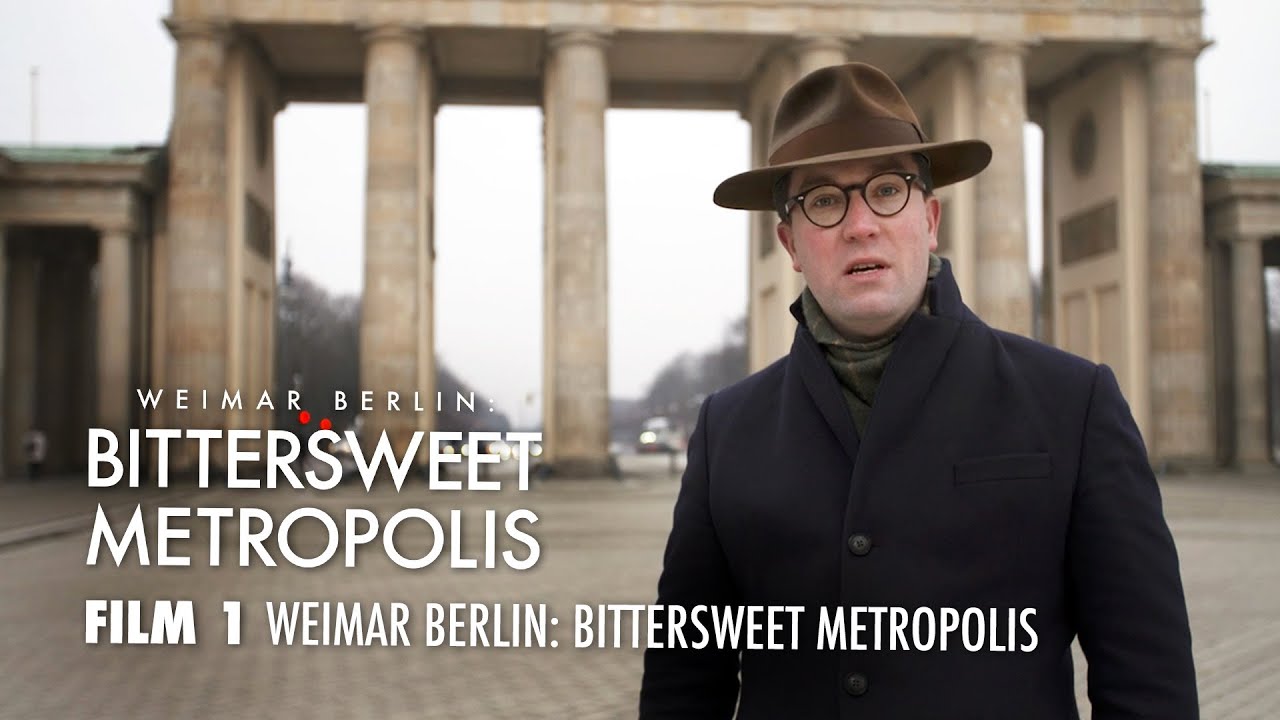Challenges from the Left and Right - Weimar and Nazi Germany GCSE History
Summary
TLDRThis video script delves into the tumultuous early years of the Weimar Republic, highlighting the political instability marked by 376 assassinations and multiple uprisings. It discusses the Spartacist Uprising led by Luxemburg and Liebknecht, which was brutally suppressed by the right-wing Freikorps, and the Kapp Putsch, a right-wing coup attempt thwarted by a general strike. The video underscores the challenges faced by the Weimar government from both extremes of the political spectrum and its eventual show of public support.
Takeaways
- 🏛️ The Weimar Republic faced significant internal challenges from both the extreme left and right, leading to political instability.
- 🔪 High levels of political violence were present, with 376 political assassinations between 1919-23, mostly by the extreme right.
- 🗣️ Politicians lived in fear due to the real threat of assassination, which was often met with lenient punishment from sympathetic judges.
- 📢 Right-wing opponents used the assassinations to undermine the government's ability to maintain peace.
- 🤝 Two notable uprisings, the Spartacist Uprising and the Kapp Putsch, attempted to overthrow the Weimar government.
- 🔴 The Spartacist Uprising was a left-wing rebellion led by Rosa Luxemburg and Karl Liebknecht, aiming to establish a Communist state.
- ⚔️ The Freikorps, right-wing ex-army soldiers, were called upon by the Weimar government to brutally suppress the Spartacist Uprising.
- 🗓️ The Kapp Putsch was a right-wing uprising in response to the Treaty of Versailles, attempting to install a nationalist government.
- 👷♂️ The general strike called by President Ebert during the Kapp Putsch demonstrated the support of the people for the Weimar government.
- 🤝 The success of the general strike highlighted the importance of worker support for the government's stability.
- 📢 The video script is self-funded, and the creator encourages viewers to support the channel through donations.
Q & A
What is the main topic of the video script?
-The main topic of the video script is the challenges faced by the Weimar Republic and the rise of Nazi Germany, as covered in the GCSE Edexcel 9-1 history course.
Why was the Weimar Republic's government unpopular?
-The Weimar Republic's government was unpopular due to various reasons, including political instability, fear of assassination among politicians, and the perception of betrayal by the extreme left and right wings.
How many political assassinations occurred between 1919 and 1923 in the Weimar Republic?
-There were 376 political assassinations between 1919 and 1923, with the majority carried out by the extreme right.
What was the Spartacist Uprising and who led it?
-The Spartacist Uprising was an extreme left-wing rebellion that took place on January 12, 1919, led by Rosa Luxemburg and Karl Liebknecht, aiming to create a Communist state.
Who were the Freikorps and what role did they play in the Spartacist Uprising?
-The Freikorps were right-wing ex-army soldiers who were called upon by the Weimar government to put down the Spartacist Uprising in a bloody manner.
What was the Kapp Putsch and who organized it?
-The Kapp Putsch was a right-wing uprising organized by journalist Wolfgang Kapp in response to the Treaty of Versailles, aiming to establish a new nationalist government with Kapp as chancellor.
What was the outcome of the Kapp Putsch?
-The Kapp Putsch failed after President Ebert called for a general strike of workers, which was largely supported, leading to the Putsch's inability to continue without basic services and Kapp fleeing Berlin on March 17th, 1920.
What does the video script suggest about the support for the Weimar government?
-The script suggests that despite the challenges, the Weimar government had some support, particularly from the general public during the Kapp Putsch, as evidenced by the successful general strike.
How did the video script describe the political climate during the Weimar Republic's early years?
-The political climate during the Weimar Republic's early years was described as unstable, with politicians living in fear of assassination and numerous uprisings attempting to overthrow the government.
What was the significance of the assassinations and uprisings in shaping the Weimar Republic's history?
-The assassinations and uprisings were significant as they highlighted the deep political divisions within the country, the government's struggle to maintain control, and the eventual support it received from the people to maintain peace.
How can viewers support the content creator of the video script?
-Viewers can support the content creator by liking, subscribing, and commenting on the video. Additionally, the creator encourages viewers to buy them a coffee through a link provided in the description, as they are 100% self-funded.
Outlines

This section is available to paid users only. Please upgrade to access this part.
Upgrade NowMindmap

This section is available to paid users only. Please upgrade to access this part.
Upgrade NowKeywords

This section is available to paid users only. Please upgrade to access this part.
Upgrade NowHighlights

This section is available to paid users only. Please upgrade to access this part.
Upgrade NowTranscripts

This section is available to paid users only. Please upgrade to access this part.
Upgrade Now5.0 / 5 (0 votes)





